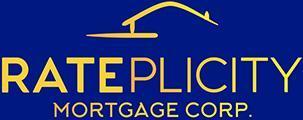Jumbo Loans
What is a Jumbo Loan?
A jumbo loan is a mortgage that exceeds the limits set by the Federal Housing Finance Agency (FHFA) for conforming loans. Conforming loans adhere to guidelines established by Fannie Mae and Freddie Mac, the government-sponsored entities that buy and securitize mortgages. The FHFA determines conforming loan limits annually, which vary by geographic location and are adjusted based on housing market trends.
Jumbo loans are ideal for financing homes that exceed these limits, often used for luxury or high-value properties. If you’re considering a jumbo loan, it’s crucial to work with a trusted mortgage broker like Rateplicity to ensure you receive expert guidance and the best possible terms.
Overview
As of 2025, the Federal Housing Finance Agency (FHFA) has updated the conforming loan limits. The baseline conforming loan limit for a single-family home in most areas of the United States is now $806,500, increased from the previous limit of $548,250. In high-cost areas, this limit can reach up to $1,209,750, up from $822,375.
Jumbo loans, which exceed these conforming loan limits, typically have stricter qualification requirements due to the increased risk for lenders. To see if you qualify for a jumbo loan contact us today.

Jumbo Home Loan FAQs
Do jumbo loans have higher interest rates?
Compared to loans that conform with the limits set by Fannie Mae and Freddie Mac, jumbo loans have higher interest rates. This is because of the size and risk of the loan. Since it exceeds the conforming loan amount, lenders view this as higher risk. Since they are not backed by the government, jumbo loans come with higher rates to protect lenders. However, interest rates vary with market conditions and it is possible to get a favorable rate with a jumbo loan.
What type of buyer should consider a jumbo loan?
Buyers that are interested in a jumbo loan are obviously going to be looking to purchase a home that has a higher value. This type of loan would be good for high income earners who can afford higher mortgage payments each month. This type of buyer is most likely going to be purchasing a larger home. This could be necessary because of a growing family and a need for more space, extra bedrooms, or additional amenities. This type of buyer might also be looking to buy in a higher-cost area. In vacation areas, homes are generally pricier and may require a jumbo loan. They might also be purchasing an investment property or a second home.
